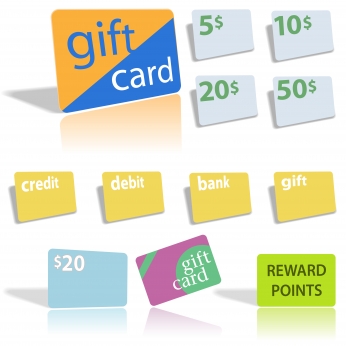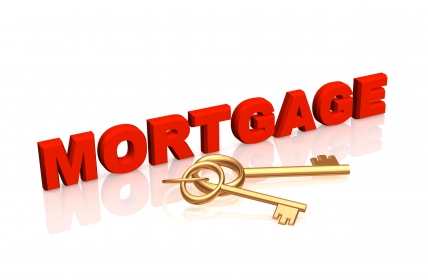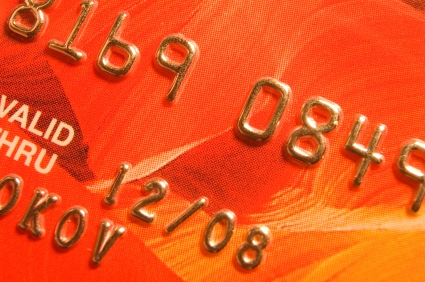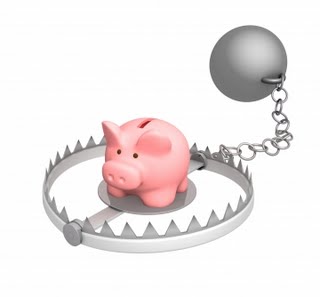Archive for 2009
Tuesday, September 8th, 2009
 Consumers are becoming weary of debt – many simply don’t want to own a credit card and take the chance of making an impulse purchase. And yet, in some instances plastic is necessary. Shopping on line, for instance, generally requires a credit card. For them, a pre-paid card is the answer to shopping, but controlling spending. Consumers are becoming weary of debt – many simply don’t want to own a credit card and take the chance of making an impulse purchase. And yet, in some instances plastic is necessary. Shopping on line, for instance, generally requires a credit card. For them, a pre-paid card is the answer to shopping, but controlling spending.
A pre-paid card’s limit is set by the amount of funds you’ve deposited, just like a checking account. So why not simply use a debit card tied to a checking account when shopping on line?
Some consumers simply don’t want to own a checking account. They’ve had troubles stemming from account mis-management and don’t want to take the chance of bounced check fees, overdraft fees, etc. Some of those consumers are not even able to obtain a checking account due to past troubles that have destroyed their credit ratings.
Their only choices are cash or a pre-paid credit card. Since many retailers and even utility companies will now accept credit cards on line for payment, the pre-paid card is a convenience for bill-paying. Going on line is much easier than buying and mailing money orders, and the on-line receipt offers assurance that the bill was paid.
Who else benefits from using pre-paid credit cards?
Employees whose employers are now making a direct deposit to employee credit cards rather than issuing checks.
Gift givers who want to give their loved ones the option of choice that’s absent when giving a gift card from a specific store.
Parents who supply funds to children away at school via deposits to their pre-paid credit cards.
Government agencies that seek to control fraud and reduce costs while distributing benefits to recipients in welfare and food stamp programs.
Travelers who prefer the convenience of a card over cash, but who don’t want to use their credit cards to an extent that would damage their credit scores.
Employers who provide per diem travel expenses to employees on the road.
As with any other credit card, shop and compare offerings before choosing. Each pre-paid credit card issuer has its own rules and policies. Thus you could find a vast difference in both the number and cost of fees from one card to another.
You might find fees for:
• Application
• Activation
• Annual maintenance
• Monthly maintenance
• Each Transaction
• Balance Inquiries
• Statements
• Customer service calls
Also similar to other credit and debit cards – you could be subject to “holds” if you use the card for gasoline, car rentals, or hotel reservations.
Author:Marte Cliff
CreditScoreQuick.com your resource for free credit reports, credit cards, loans, and ground breaking credit news.
Posted in Uncategorized | Comments Off
Monday, September 7th, 2009
 Because mortgage loan modification is nothing more than a temporary reduction in interest rates, many financial experts believe it should have no impact on credit scores. It should not trigger a notation on a consumer’s credit report any more than does a temporary or promotional reduction in a credit card interest rate. Because mortgage loan modification is nothing more than a temporary reduction in interest rates, many financial experts believe it should have no impact on credit scores. It should not trigger a notation on a consumer’s credit report any more than does a temporary or promotional reduction in a credit card interest rate.
However, that’s not how FICO sees it at this time.
Lenders who follow reporting guidelines, will report loan modifications to FICO as a “Partial Payment Plan,” which is damaging to a consumer’s credit scores.
These new guidelines were issued as a result of agreement between the Consumer Data Industry Association and the credit bureaus. Apparently, representatives from FICO were not first consulted to determine how a consumer’s credit scores might be affected.
The possible reason for this apparent oversight could be that FICO has yet to conduct research into how loan modifications should or should not affect credit scores. They do not yet know if loan modification makes a consumer a higher credit risk.
Since loan modifications are a relatively new solution, it could be years before sufficient information is gathered to make a true determination.
Some in the industry insist that consumers who have their loans modified are merely postponing the inevitable – that many, if not most, will be in default again within 6 months.
Consumer advocates maintain that the “Partial Payment Plan” designation is false, misleading, and unfair to consumers who see their credit ratings drop as a result. A loan modification does nothing to reduce the balance due. The consumer will still be obligated to pay the entire balance, and the interest rate reduction will not be permanent. Thus, consumers who take advantage of this portion of the “Making Home Affordable” program should not be penalized by lowered credit scores.
When it comes to FICO scores, however, loan modification is the least of the evils faced by homeowners who are upside down in their mortgages. The only option that will not damage scores is selling the house for enough to cover all outstanding debt against it.
The following cause even greater damage to credit scores:
Short sales, which are reported as charge offs, settlements, or the initial steps toward foreclosure.
Foreclosures, which are, of course, reported as foreclosures.
Forfeitures in lieu of foreclosure are reported as a voluntary foreclosures.
Short refinances are reported as settlements or charge offs. A short refinance is a refinance with the same lender, but with a portion of the principle balance forgiven.
Author:Marte Cliff
CreditScoreQuick.com your resource for free credit reports, credit cards, loans, and ground breaking credit news.
Posted in Uncategorized | 8 Comments »
Thursday, September 3rd, 2009

Credit Card holders are glad to see that relief is coming in February, although card issuers have been using this time to raise rates, add fees, and change programs so drastically that their costs will still be high.
At least after February card issuers will no longer be allowed to slash credit lines below the customer’s existing balance or change interest rates on those existing balances. That alone is a huge relief for consumers who are in debt on credit cards.
But consumers who use credit cards aren’t the only ones who are being affected by the bank’s efforts to raise their profit margins.
Have you thought about those retailers who take your credit card in payment for goods and services? The card issuers have been raising their fees as well, and it is cutting deeply into profits for many of them. Some say that on low dollar / low-profit items, they are actually going in the hole with each purchase made on a charge card.
The agreement that retailers make with the card issuers when they set up accounts says that they aren’t allowed to treat credit card customers any differently than cash customers, but some retailers are now ignoring that agreement.
According to reports, the card issuers could cancel their retail accounts for this bit of non-compliance, but the so many retailers are fighting back that they aren’t taking steps against them – at least not yet.
Retailers across the country have begun posting signs regarding low-dollar credit card charges. Some say they will not accept a credit card for purchases under a set amount. I’ve seen both $5 and $10. Others are charging a $1 “transaction fee” when they accept a card for a purchase under $10.
And of course, some angry consumers are calling banks and demanding that these retailers be forced to stop the practice.
It appears that fees charged do vary greatly from one bank to another. Some of the smaller banks are much more retailer-friendly than large banks, so retailers have begun transferring their business.
This is a service and we all do expect to pay for services, but no one wants to be charged excessively.
So while we have long been advising consumers to compare credit cards carefully before choosing, it is now evident that retailers should compare carefully before choosing the bank for their retailer accounts.
Meanwhile, in an effort to stay in business, many retailers are raising their prices to cover the added expense. That means that even those consumers who have gone back to using cash are going to pay for the increase in banking fees.
Author: Mike Clover
CreditScoreQuick.com your resource for free credit reports, credit cards, loans, and ground breaking credit news.
Posted in Uncategorized | 2 Comments »
Thursday, September 3rd, 2009

Yes, under the new Fannie Mae guidelines effective September 1, you can. In fact, you can go into credit card debt for up to 2% of the value of your new mortgage loan.
Borrowers are still not allowed to use credit card proceeds for the down payment, but may use them for certain costs paid outside of closing and early in the application process. This would include lock-in fees, origination fees, commitment fees, credit report fees, and appraisal fees.
This may sound good on the surface, but is it? It may not be smart, and in today’s climate of shrinking credit card limits, it might not even be possible for most people.
Charging an amount of this size requires two things: A very high FICO score going in, and very high credit limits on your credit cards.
We’ve been told for years that in order to keep credit scores high, we should not use more than 30% of the available balance on any one credit card. If you plan to charge 2% of the value of a $200,000 home loan, you’d be adding $4,000 to your credit card balance. That means your limit has to be more than $13,334.00 – with no other charges on the card, of course.
If you begin the loan process with a FICO score that’s “on the edge” of score limits to obtain the best rates, using your credit card for these purchases could lower it that one or two points to drop you into a higher interest rate bracket.
And if you use the card early in the process it could get worse…
We’ve been seeing consumers across the country suddenly hit with credit card limits below their outstanding balance – especially if they have just made a large purchase or gotten a cash advance. This practice will be outlawed in February, but right now you might charge that $4,000 in costs against a $14,000 credit limit – then find that your credit limit has been reduced to $3,000. That will really hurt your FICO scores.
Consider carefully before using a credit card for loan costs.
This change also means more work for your mortgage broker. In order to use a credit card for these fees, the lender must verify that the borrower has sufficient liquid funds to cover the charges, in addition to other funds needed for closing. Or, the lender can re-calculate the credit card payment to account for the new charges, then use the updated payment to re-calculate the qualify loan ratio.
Author:Marte Cliff
CreditScoreQuick.com your resource for free credit reports, credit cards, loans, and ground breaking credit news.
Posted in Uncategorized | Comments Off
Monday, August 31st, 2009
 A credit card is one of those double edged swords. In the realm of credit you need one or two cards to maintain healthy credit scores. With the current FICO model, it is paramount that you have a minimum of one credit card reporting to your personal credit report. When it comes to getting a mortgage loan, the banks usually like to see 3 trade lines reporting good activity with 3 different creditors for the last 12 to 24 months. You can see how no credit cards or credit could affect your ability to get a loan. A credit card is one of those double edged swords. In the realm of credit you need one or two cards to maintain healthy credit scores. With the current FICO model, it is paramount that you have a minimum of one credit card reporting to your personal credit report. When it comes to getting a mortgage loan, the banks usually like to see 3 trade lines reporting good activity with 3 different creditors for the last 12 to 24 months. You can see how no credit cards or credit could affect your ability to get a loan.
The reason to have credit is to show creditors you have the ability to pay back your debts borrowed. When it comes to calculating your credit scores, it’s real simple. How much credit do you have? How long have you had it? How much credit is charged vs. limit of credit line? What is your credit history? With all of this being said, a credit card is a must to maintain healthy credit.
There however is a downside to the matter. Once you have a credit card you must be responsible with that card. It’s very easy to charge too much on credit card and get yourself in trouble. Credit Cards are not designed to buy what you cannot afford to pay off in a couple of months. When charging on a credit card, you should never charge more than you can afford to pay off that particular month. When you find yourself charging more than you can pay off that particular month, at that point you are heading down a risky road. The fees and interest on a card are high, and can get out of control once you have charged close to the limit a credit card company has extended to you. This is where most get in trouble real quick. With the FICO score model, you don’t want to charge more than 20% of the allowed credit limit.
Credit Scores decreased – When you have charged up the credit limit that was extended to you, the credit card company and FICO model consider you a higher risk. Two situations can result from this. You credit score can be lowered, along with your credit cards fee’s going up. You can see how credit cards are a necessary evil and how responsibility is a must. This is the whole basis by which creditors judge your ability to pay them back so in a nut shell credit cards are necessary, but they come with responsibility as well.
So with all of this being said, get your credit card today……..
CreditScoreQuick.com your resource for credit.
Posted in Uncategorized | Comments Off
Tuesday, August 25th, 2009
-766975.jpg)
Before you choose a checking account, check to see what kinds your bank of choice offers, and the fees associated with them.
Banks do want your business, and many still offer gifts as an incentive to open an account with a sizeable deposit. Others offer gifts if you promise to use their online services to pay bills. But don’t let the gifts make your decision. Check services and fees first.
A basic checking account is fine for most people. But look out – they don’t pay interest and they may charge you if you write more than a set number of checks per month or impose a fee if your account balance dips below a certain dollar figure.
Free checking generally means you can write all the checks you want and let your balance fall to a dollar without paying fees. But you’ll pay hefty fees if you have an overdraft. You may also pay fees for other services such as check cashing, account inquiries, and debit card purchases.
Interest-bearing accounts usually require a minimum balance to open and require you to maintain a minimum balance. If you dip below that balance, the fees could far outweigh the low interest rate you’ll get in return. This account is usually not worth the trouble.
Express checking accounts are geared toward students and others who don’t want to spend a lot of time on transactions. Most business is conducted on line or by telephone or ATM. Most charge a fee if you decide to visit the bank and speak with a live teller.
Senior and Student Checking Accounts give special treatment to students and those over 55 years of age. Benefits include free checking, free cashiers and travelers checks, and even discounts on such things as prescriptions and travel expenses.
Money Market Checking Accounts are for people who can maintain high balances and who will need to write only a few checks each month. It pays more interest than basic checking or savings accounts while keeping funds easily accessible.
Business Checking is the most expensive, with fees per item deposited and per check written.
Before deciding which checking account you need, examine your own habits. For most a free checking account is the best choice – and of course seniors and students should take advantage of the special treatment banks offer to them.
But if you have sizeable reserves and want to have them instantly available, an interest bearing account or Money Market Account could be the right choice for you.
Other fees you should watch for are:
Abandoned account fees – if you let an account lay dormant for 3 to 5 years, the bank will hand your money over to the state – but not before deducting a sizeable fee.
Account maintenance fees – some banks charge a monthly fee no matter what.
ATM fees – You could pay on both ends for use of an ATM not associated with your bank. That $100 withdrawal could easily end up costing $106 – $110!
Debit Card Purchases – Have been without additional cost, but a growing number of banks are imposing fees for each purchase. Saying “credit” instead of “debit” at the check-out counter might transfer the fee from you to the retailer.
Check printing – Most banks charge for printing, but a few accounts do offer free checks. Sometimes checks through the bank are far more expensive than those you could order on line.
Counter checks – if you run out of checks and have to get a few from a teller to tide you over, most banks won’t charge, but some will.
Bounced deposits – If you deposit a check and it bounces, your bank may impose a fee.
Author: Mike Clover
Posted in Uncategorized | Comments Off
Monday, August 24th, 2009

You’ve no doubt been told about the crash in 1929 – when the banks closed and depositors were just out of luck. Back then there was no FDIC to insure your deposits, but now there is, so the threat is not so dire.
Still, FDIC only insures up to $250,000, so if you have more, you should spread your accounts between different banks.
Hopefully we’ll never have another widespread crash. What consumers deal with now is one bank failing. In that instance, one of three things should happen:
• Another bank takes over the complete institution
• The bank’s insured deposits are transferred, but loans and uninsured deposits ae left to the FDIC
• The FDIC takes over until a buyer can be found
You’ve read about the JP Morgan takeover of Washington Mutual – no branches closed and the acquiring bank merely took over. Much the same happened when Bank of America acquired Countrywide.
Here’s how some of your services could be affected if your bank fails:
• ATM’s – Transactions should go through, but posting may be delayed. Keep careful records of what you’ve done.
• Automatic payments – should be made on time, but do check rather than assume
• Checks – All should be normal. If the new bank plans to make changes to your account, they should contact you.
• Insured deposits – the acquiring bank will take these and continue with the same interest rate you were receiving.
• Uninsured deposits – NOT a good idea! The acquiring bank may take them or may not. Right now the ratio is about 50-50, so don’t take chances.
• Brokered Deposits – also can be risky. Talk with your broker to make sure your deposits are not in the same bank with your other accounts – thus pushing you over the $250,000 insured limit.
• Dormant accounts – Use your accounts regularly, as accounts not used for 18 months will be turned over to your State.
• IRA’s – These are ensured and will be turned over in their entirety.
• Loans – Loans may be acquired or held by the FDIC while a new buyer is found. This is done on a case by case basis. If you’re in the midst of a construction loan, you will probably be able to continue with scheduled draws.
• Online banking – Banks that fail close on a Friday, and the new bank or FDIC officially takes over on Monday morning. Online banking would not be available over the week-end.
• Overdraft lines of credit – should not be affected and will be taken over by the new bank.
• Night deposit boxes will still accept deposits for posting on Monday.
Unless you have uninsured accounts or dormant accounts, the biggest disruption in your banking services will be the inability to do business over the week-end. Banks usually open on Saturday will be closed and on line services unavailable.
Author: Mike Clover
CreditScoreQuick.com your resource for free credit reports, credit cards, loans, and ground breaking credit news.
Posted in Uncategorized | Comments Off
Thursday, August 20th, 2009
 If you’re headed off to college this fall you should not be anxious to get into debt, but you should be getting a credit card or two before February. If you’re headed off to college this fall you should not be anxious to get into debt, but you should be getting a credit card or two before February.
That’s when the new credit card regulations come into effect, and once they do, only those students with a job or a co-signer will have access to new credit cards.
Why should you care?
Because now is the time for you to begin building credit to use after graduation, and wise use of a credit card will help accomplish that goal.
If you’re just starting school, or already a student, do the research and find a card with the best rates and terms. Don’t just respond to any solicitation that might come in the mail. Instead, compare the offerings.
Look for a card with no annual fee and ask for a credit line that’s large enough to allow for occasional use of the card without exceeding 30% of available credit. Stay away from the “fee harvester” cards – those are the ones that charge an application fee, an annual fee, a fee for each use, a fee for non-use, a fee for paying the bill on line, and many others.
If that’s the only kind you can get, try instead to find the co-signer so you can be eligible for a better card.
As long as you’re doing research, look for a card that gives rewards for the purchases you’re likely to make. Some cards offer rewards for eating out while others reward you for renting movies, buying CD’s, or even buying your textbooks. If you’re going to be flying home for holidays, you might want to consider a travel rewards card.
Building your credit now by making small purchases and paying the balance in full each month will pay dividends after graduation. When your credit scores are high you’ll find it easier to get a loan for such necessities as a car, and you’ll have an easier time renting an apartment or home. Also, unless the rules change to prevent employers from checking credit, you’ll have an advantage when job hunting. You’ll even pay less for insurance.
Another way to begin building your credit score is to be added as a user on someone else’s credit card. That is, of course, if their credit is good and they pay that card on time, every time. This practice, called piggybacking, was disallowed for a time, but is once again in use.
You don’t have to actually carry or use the card – you only need to be named as a user. So if you have a relative with outstanding credit, ask them to add you to one of their credit card accounts.
Author:Marte Cliff
CreditScoreQuick.com your resource for free credit reports, credit cards, loans, and ground breaking credit news.
Posted in Uncategorized | Comments Off
Friday, August 14th, 2009
We all know that if you opt-out of a credit card rate increase, that’s the end of using that card. They’ll close your account – or at least close the part that allows you to use it again.
The account will remain open for receiving payments, and it will remain on your credit report – showing both the credit line and the balance owed at the time of each month’s statement.
But what then?
If you’re at a rate of say, 8.9% and they notify you of an increase to 16.9%, you can opt-out and keep paying 8.9% until your balance is paid in full.
Or can you?
As it turns out, the answer is no. You mustn’t assume that your rate will remain at 8.9% just because you took this action.
Your credit card issuer can come back in a few months and raise the rate again. They need only give you 15 day’s written notice of the change before it goes into effect. Considering possible delays in mail time, consumers taking vacations or working away from home, and a variety of other factors, you might not even know about the latest change until it’s too late to prevent it.
That is, if you read the mail at all. Since most people assume that they’ve done what they needed to do and their rate is set until the balance is paid, they don’t read that notice and thus don’t even know that they need to action in time to avoid a rate increase.
Under the new Credit Card Accountability, Responsibility and Disclosure Act that will go into effect in February 2010, the card issuers won’t be allowed to apply a rate increase
for “any reason or no reason” as they can now.
The only time they’ll be able to raise rates is
1. If your account is 60 days past due
2. If you’ve signed up for a variable rate tied to an index and the index changes
3. When a promotional period expires
When it comes to dealing with credit cards, February 2010 can’t come too soon for most of us. In the meantime, do read every piece of mail you receive from your credit card issuer.
Not only could it tell of a rate increase, it could give notice of a drop in your credit line that could cause you trouble. Should you inadvertently use a card whose line has been lowered you could find yourself looking at over-limit fees or an embarrassing denial of credit at a retailer’s.
Author:Marte Cliff
CreditScoreQuick.com your resource for free credit reports, credit cards, loans, and ground breaking credit news.
Posted in Uncategorized | Comments Off
Wednesday, August 12th, 2009
Behavior scores aren’t just for grammar school children any more. In fact, if you have ever used a credit card, there’s a behavior score on you somewhere. There’s also a fraud score, based on the same information.
You may have been thankful when you got a call from a credit card issuer asking if you were the one to make a recent purchase. And that’s good – if a thief steals your credit card and tries to buy a new stereo system for several thousand dollars, you want him stopped.
The reason they called is because the purchase was not consistent with your usual credit card use, and that sent up a red flag. That means that your credit card companies are watching what you spend from month to month. The fraud score alerts them that buying expensive electronic equipment is not your normal behavior.
Behavior scores are calculated to evaluate the risk you pose to the credit card issuer.
If you go along from month to month, paying each balance in full, that becomes your normal behavior. If you suddenly start carrying a balance, and that balance starts growing as you begin paying only the minimum each month, your card issuer begins to wonder what’s going on in your life.
Further, if you use your card primarily for purchases at upscale boutiques, concert halls, and night clubs, that becomes your norm. If you suddenly begin buying clothing at Wal Mart or charging groceries, it sends up a big red flag.
That change in behavior could signal a change in circumstances, such as a job loss that could eventually render you unable to make your payments.
What will the card issuer do about it? In most cases, your credit limit will be decreased and your interest rate will increase. That means your minimum payment will also increase, so if you’ve been having a hard time and the payment is difficult to meet, you’ll now have a larger payment.
Your card issuer will also look at your behavior scores to decide if they want to reissue the card when it expires. If your behavior has changed drastically, they may decide that they don’t want to extend any more credit to you.
On the other hand, if you’re a good risk but aren’t generating profit, they’ll use your behavior scores to decide if they should drop your account or do something to encourage more use. Then you could begin receiving notices of a credit line increase, promotional interest rates, and convenience checks.
Author:Marte Cliff
CreditScoreQuick.com your resource for free credit reports, credit cards, loans, and ground breaking credit news.
Posted in Uncategorized | Comments Off
Disclaimer: This information has been compiled and provided by CreditScoreQuick.com as an informational service to the public. While our goal is to provide information that will help consumers to manage their credit and debt, this information should not be considered legal advice. Such advice must be specific to the various circumstances of each person's situation, and the general information provided on these pages should not be used as a substitute for the advice of competent legal counsel.

|
 Consumers are becoming weary of debt – many simply don’t want to own a credit card and take the chance of making an impulse purchase. And yet, in some instances plastic is necessary. Shopping on line, for instance, generally requires a credit card. For them, a pre-paid card is the answer to shopping, but controlling spending.
Consumers are becoming weary of debt – many simply don’t want to own a credit card and take the chance of making an impulse purchase. And yet, in some instances plastic is necessary. Shopping on line, for instance, generally requires a credit card. For them, a pre-paid card is the answer to shopping, but controlling spending.


 Because mortgage loan modification is nothing more than a temporary reduction in interest rates, many financial experts believe it should have no impact on credit scores. It should not trigger a notation on a consumer’s credit report any more than does a temporary or promotional reduction in a credit card interest rate.
Because mortgage loan modification is nothing more than a temporary reduction in interest rates, many financial experts believe it should have no impact on credit scores. It should not trigger a notation on a consumer’s credit report any more than does a temporary or promotional reduction in a credit card interest rate.


-766975.jpg)


